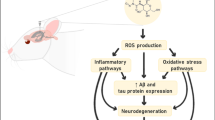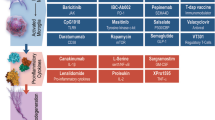Abstract
Objective
To observe the intervention effects of Tiaobu Xinshen Recipe (调补心肾方, TXR) on patients with mild cognitive impairment caused by Alzheimer’s disease (MCI-AD).
Methods
Totally 88 MCI-AD patients with syndrome of Xin (Heart) and Shen (Kidney) deficiency were assigned to the experimental group (47 cases, treated with TXR) and the control group (41 cases, treated with donepezil hydrochloride) using a random number table. Final recruited qualified patients were 44 cases in the experimental group and 39 cases in the control group. The therapeutic course was 12 weeks. Neuropsychological scales [mini mental state examination (MMSE) and Montreal cognitive assessment (MoCA)], and Chinese medicine (CM) dementia syndromes scales were performed in all patients, and results were compared between groups or intra-group before and after treatment.
Results
MMSE and MoCA scores of the two groups were increased after treatment compared with those before treatment (P<0.05). But there was no statistical difference in MMSE or MOCA scores after treatment between the two groups (P>0.05). CM dementia syndrome score was significantly decreased after treatment in the experimental group compared with the control group (P<0.01). Visual spatial and executive function scores and delayed recall scores of the two groups were increased compared with those before treatment (P<0.01).
Conclusion
TXR could effectively improve cognitive impairment of MCI-AD patients with syndrome of Xin and Shen deficiency.
Similar content being viewed by others
References
Petersen RC. Mild cognitive impairment. Continuum (Minneap Minn) 2016;22 (2 Dementia):404–418.
Greenberg SM, Tennis MK, Brown LB, Gomez-Isla T, Hayden DL, Schoenfeld DA, et al. Donepezil therapy in clinical practice: a randomized crossover study. Arch Neurol 2000;57:94–99.
Lin ZY, Huang TW, Huang JS, Zheng GY, Fu KL, Chen XY, et al. Nourishing Xin and Shen method improved mild cognitive impairment due to subcortical small vessel disease: a clinical study. Chin J Integr Tradit West Med (Chin) 2015;35:41–45.
Do LLTN. American Psychiatric Association Diagnostic and Statistical Manual of Mental Disorders (DSM-JV). Encyclopedia of child behavior and development. Springer US, 2011:84-85.
Zheng XY, ed. Guidelines for clinical research of new drugs of traditional Chinese medicine. Beijing: China Medical Science and Technology Press; 2002:91–99.
Pfeffer RI, Kurosaki TT, Harrah CH Jr, Chance JM, Filos S. Measurement of functional activities in older adults in the community. J Gerontol 1982;37:323–329.
Radloff LS. The CED-D scale: a self-report depression scale for research in the general population. Applied Psycholog Measurement 1977;1:385–401.
Zheng GC, ed. Brain aging and senile dementia. Shanghai: Shanghai Science and Technology Press; 1995:229–231.
Nasreddine ZS, Phillip NA, Bedirian V. The Montreal Cognitive Assessment, MoCA: a brief screening tool for mild cognitive impairment. J Am Geriatr Soc 2005;53:695–699.
Petersen RC, Parisi JE, Dickson DW, Johnson KA, Knopman DS, Boeve BF, et al. Neuropathologic features of amnestic mild cognitive impairment. Arch Neurol 2006;63:665–672.
Espinosa A, Alegret M, Valero S, Hernández I, Mauleón A, Rosende-Roca M, et al. A longitudinal follow-up of 550 mild cognitive impairment cases: evidence for large conversion to dementia rates and detection of major risk factors involved. J Alzheimers Dis 2013;34:769–780.
Zhou AH, Jia JP, Min BQ, Yang PJ. Comparison of neuropsychological features of mild cognitive impairment in different etiology. Chin J Neurol (Chin) 2008;41:242–246.
Reed B, Mungas DM, Kramer JH, Ellis W, Vinters HV, Zarow C, et al. Profiles of neuropsychological impairment in autopsy-defined Alzheimer’s disease and cerebrovascular disease. Brain 2007;130:731–739.
Hugo J, Ganguli M. Dementia and cognitive impairment: epidemiology, diagnosis, and treatment. Clin Geriatr Med 2014;30:421–442.
Lin SM, Wang J, Zhou RQ, Yu ZH. Clinical study of Alzheimer’s disease from Xin and Shen. Chin J Integr Tradit West Med (Chin) 2003;23:583–586.
Yang Y, Liu JP, Fang JY, Wang HC, Wei Y, Cao Y, et al. Effect and safety of Huannao Yicong Formula on patients with mild-to-moderate Alzheimer’s disease: a randomized, double-blinded, donepezil-controlled trial. Chin J Integr Med 2019;25:574–581.
Chen JX, Li ZW. Lu Xi’s experience in the treatment of senile dementia. Guangming J Chin Med (Chin) 2010;25:1140.
Liu Y, Liu W, Li J, Tang S, Wang M, Huang W, et al. A polysaccharide extracted from Astragalus membranaceus residue improves cognitive dysfunction by altering gut microbiota in diabetic mice. Carbohydr Polym 2019;205:500–512.
Li M, Li H, Fang F, Deng X, Ma S. Astragaloside J attenuates cognitive impairments induced by transient cerebral ischemia and reperfusion in mice via anti-inflammatory mechanisms. Neurosci Lett 2017;639:114–119.
Deng M, Sun H, Shen J, Fan Y, Zhang L, Zhang J. Radix Angelica Sinensis promotes synaptic plasticity during cognitive recovery in chronically stressed rats. Curr Neurovasc Res 2015;12:232–239.
Xin J, Zhang J, Yang Y, Deng M, Xie X. Radix Angelica Sinensis that contains the component Z-ligustilide promotes adult neurogenesis to mediate recovery from cognitive impairment. Curr Neurovasc Res 2013;10:304–315.
Yang B, Liu B, Liu Y, Han H, Kuang H. Cognitive enhancement of volatile oil from the stems of Schisandra chinensis Baill in Alzheimer’s disease rats. Can J Physiol Pharmacol 2018;96:550–555.
Wang M, Bi W, Fan K, Li T, Yan T, Xiao F, et al. Ameliorating effect of Alpinia oxyphylla-Schisandra chinensis herb pair on cognitive impairment in a mouse model of Alzheimer’s disease. Biomed Pharmacother 2018;97:128–135.
Zhao X, Liu C, Xu M, Li X, Bi K, Jia Y. Total lignans of Schisandra chinensis ameliorates A β 1–42-induced neurodegeneration with cognitive impairment in mice and primary mouse neuronal cells. PLoS One 2016;11:e0152772.
Acknowledgment
We are grateful to all the participants and staffs in the trial.
Author information
Authors and Affiliations
Contributions
Lin ZY designed the research and analyzed the data. Lin ZY and Huang TW drafted the manuscript. Huang JS managed and coordinated the study. Zheng GY assisted with subject recruitment and supervised training sessions. All authors have read and approved the final version of the manuscript.
Corresponding author
Additional information
Conflict of Interest
All the authors declare that they have no competing interests.
Supported by Fujian Provincial Research Project of Traditional Chinese Medicine (No. wzkf201309)
Rights and permissions
About this article
Cite this article
Lin, Zy., Huang, Tw., Huang, Js. et al. Tiaobu Xinshen Recipe (调补心肾方) Improved Mild Cognitive Impairment of Alzheimer’s Disease Patients with Xin (Heart) and Shen (Kidney) Deficiency. Chin. J. Integr. Med. 26, 54–58 (2020). https://doi.org/10.1007/s11655-019-3073-z
Accepted:
Published:
Issue Date:
DOI: https://doi.org/10.1007/s11655-019-3073-z




